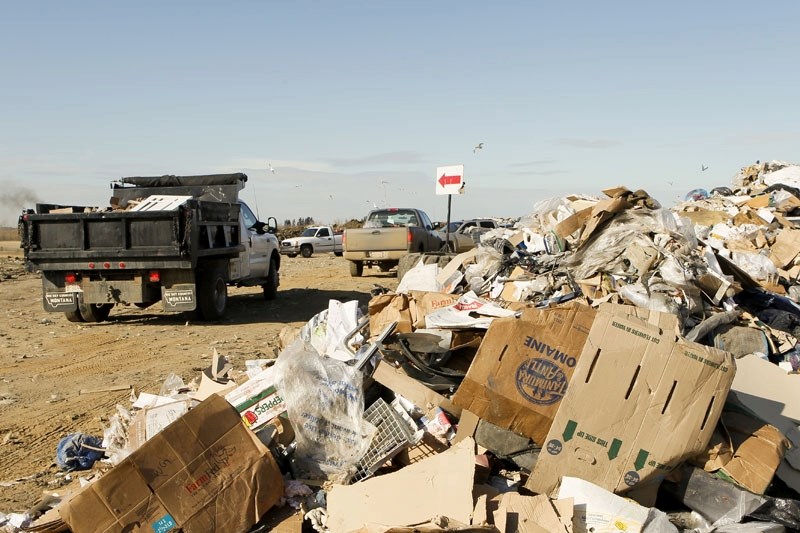The first four months of St. Albert’s new solid waste program saw a sizeable amount of waste kept out of the landfill and more homes asking for smaller waste containers.
Program co-ordinator Christian Benson updated council on the first four months of the program, which saw the city add bins for solid waste and household organics. Compared to the same June-to-September period last year, the city hauled 1,330 fewer metric tonnes of solid waste to the landfill. That difference equals 13.12 per cent of the total amount of waste sent to the landfill for all of 2010.
“I wasn’t sure what the diversion numbers were at,” said Benson in a later interview. “On the environmental end to see what we’ve been able to divert, it’s fantastic to see 1,330 tonnes [diverted].”
Residents have wholeheartedly embraced organics as well, according to statistics supplied to council. As the amount of solid waste accumulated has fallen sharply, organics collection has risen to 4,116.51 tonnes with the help of the green toters, an almost-3,000-tonne increase when compared with just the tonnage recorded at the compost depot alone. Blue bag recycling has also increased by a modest 182.3 tonnes to date compared to 2010.
“Obviously when you’re moving organic waste, you see a reduction. We’re unique because pay-as-you-throw (PAYT) is a good motivator to reduce landfill waste.”
Waste management workers have also been kept busy swapping out waste carts. Of the calls received, Benson estimates two-thirds have been requests to trade large brown waste carts for smaller versions.
“We did 3,200 cart swaps that were completed in June, July and August,” Benson said. “We’re still getting 35 requests a week for a swap. That’s expected to be consistent and ongoing.”
The ultimate goal of the new waste reduction strategy is to divert 65 per cent of all waste from the landfill by 2020. As of 2010, before the carts were introduced, the diversion rate was 46 per cent.
“We’ll see an increase in that number,” Benson said. “I think so definitely. We’ve always kept numbers for waste diversion.
“I’m very optimistic we’ll hit those numbers that we are aiming for.”
The capital costs for the program also came in five per cent under budget, while operating expenses are on budget. Benson does not predict the city will need to raise its collection rates in the coming year.
While lavish in their praise, council noted some challenges that still need to be addressed, particularly introducing the waste management program to city buildings such as St. Albert Place or Servus Credit Union Place. Benson said the department is looking at a pilot program for the new year.
“Certain buildings need different requirements. You have to do research. Strathcona County has been helping, especially with a model in their building,” Benson said. “It’s a fairly big program to bring in.”
He informed council that different equipment might be required at city buildings, such as a front-end loader as opposed to the automated curbside trucks.
Mayor Nolan Crouse, while effusive in his praise of the program, also expressed his disappointment with the lack of recycling and organics’ programs at city buildings.
“I think, without coming across as critical, I’ve been a little impatient with it because we have an obligation to role model and I don’t think it’s happening quickly enough. It should be clear we have a visible role in leading this and it’s not happening,” Crouse said.
Crouse and members of council also want to see billing tied to household tonnage, but were surprised to learn Measurement Canada does not acknowledge portable scales as acceptable.
“I thought technology had advanced to that point,” Crouse said.




